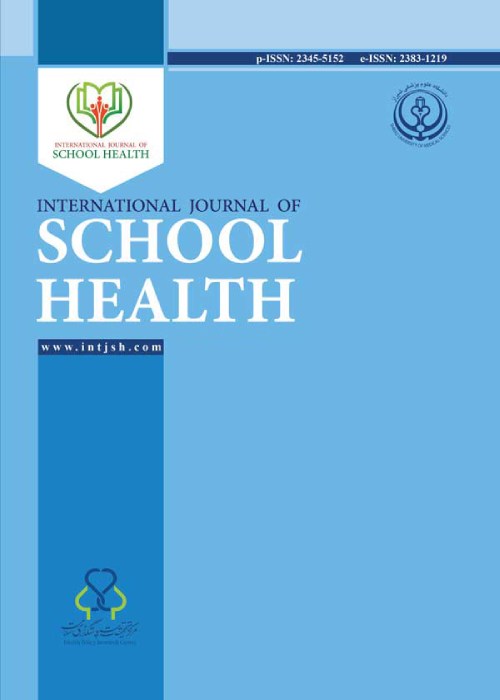Comparison of the Effectiveness of Emotion Regulation-based Cognitive Therapy and Transcranial Direct Current Stimulation on Impulsivity of Students with Special Learning Disorders
Author(s):
Article Type:
Research/Original Article (دارای رتبه معتبر)
Abstract:
Background
Special Learning Disorder is a neurodevelopmental disorder which is considered to be from biological origin and causes abnormalities at the cognitive level. This study aimed to compare the effectiveness of emotion regulation-based cognitive therapy and transcranial direct current stimulation on impulsivity of students with special learning disorders.Methods
This study was quasi-experimental and based on a pretest-posttest design with a control group. The participants were the second elementary school (fourth, fifth, and sixth grades) pupils with particular learning difficulties and were enrolled in Tabriz schools, Tabriz, Iran during the academic year 2019–2020. 54 students with unique learning difficulties who were randomly chosen from among those with exceptional learning disorders and allocated to three groups made up the study sample. The first experiment group underwent cognitive regulation therapy based on the emotion regulation for eight sessions of 45 minutes per week; the second experiment group received 20 sessions of direct transcranial Current stimulation on a daily basis, and the control group did not receive any treatment. Colorado Learning Disorder Questionnaire and the Barratt Impulsivity Scale were used to collect data. The collected data were analyzed using a Univariate analysis of covariance with SPSS version 22.Results
Based on the demographic findings, the mean age and standard deviation of the cognitive therapy group based on emotion regulation was 11.05±0.872, in the direct transcranial electrical stimulation group was 10.83±0.83 and in the control group was 11.11±0.8. The results showed that both cognitive emotion regulation treatments and transcranial direct electrical stimulation had an effect on the components of impulsivity, motor impulsivity (P=0.012), impulsivity Cognitive (P=0.001), and lack of planning (P=0.001). However, transcranial direct electrical stimulation had a greater effect on the cognitive impulsivity component of students with specific learning disorders.Conclusions
It can be concluded that direct transcranial stimulation can have a greater effect on cognitive impulsivity.Keywords:
Language:
English
Published:
International Journal of School Health, Volume:9 Issue: 3, Summer 2022
Pages:
168 to 177
magiran.com/p2517925
دانلود و مطالعه متن این مقاله با یکی از روشهای زیر امکان پذیر است:
اشتراک شخصی
با عضویت و پرداخت آنلاین حق اشتراک یکساله به مبلغ 1,390,000ريال میتوانید 70 عنوان مطلب دانلود کنید!
اشتراک سازمانی
به کتابخانه دانشگاه یا محل کار خود پیشنهاد کنید تا اشتراک سازمانی این پایگاه را برای دسترسی نامحدود همه کاربران به متن مطالب تهیه نمایند!
توجه!
- حق عضویت دریافتی صرف حمایت از نشریات عضو و نگهداری، تکمیل و توسعه مگیران میشود.
- پرداخت حق اشتراک و دانلود مقالات اجازه بازنشر آن در سایر رسانههای چاپی و دیجیتال را به کاربر نمیدهد.
In order to view content subscription is required
Personal subscription
Subscribe magiran.com for 70 € euros via PayPal and download 70 articles during a year.
Organization subscription
Please contact us to subscribe your university or library for unlimited access!


